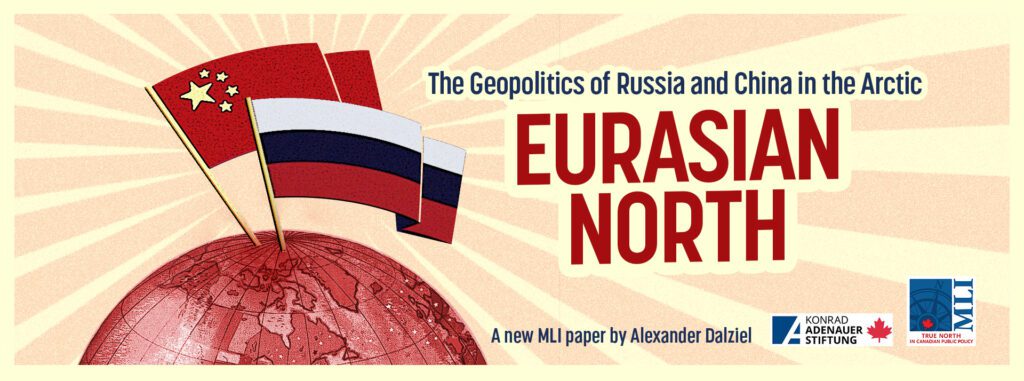This article originally appeared in the Hill Times.
By Jonathan Berkshire Miller, February 13, 2025
In January, Canada assumed the presidency of the Group of Seven. It does so at a moment of profound geopolitical turbulence.
The uncertainty is not only limited to the return of United States President Donald Trump to the White House, and the accompanying threat of heavy tariffs on the Canadian economy. War persists in Europe, tensions escalate in the Indo-Pacific, and the Arctic is emerging as an increasingly contested space.
At home, Canada grapples with political uncertainty and economic headwinds, yet these domestic challenges must not deter us from seizing a crucial leadership role on the world stage. Uniquely positioned with deep transatlantic ties, Pacific geography, and Arctic sovereignty, our nation must serve as the “geopolitical glue” linking allies across these three vital strategic theatres.
Historically, the Group of Seven (G7) has played a critical role in fostering global economic stability and democratic resilience. Today, however, its function extends beyond economic policy to the realm of collective security.
Canada is uniquely placed to bridge the transatlantic alliance, the Indo-Pacific, and the Arctic. In doing so, we can reinforce coordination against shared threats posed by an increasingly assertive China, a belligerent Russia, and a growing web of transnational challenges. These issues range from economic coercion to cyber warfare and artificial intelligence governance.
If Canada wishes to make the most of its G7 presidency, we must actively champion stronger connectivity among allies, and drive home the necessity of a truly integrated security approach.
For decades, our nation has been a steadfast transatlantic partner, contributing to NATO and maintaining robust security and trade ties with Europe. However, the security of the Euro-Atlantic is no longer just about the continent. It’s intrinsically linked to developments in the Indo-Pacific.
A Russia emboldened in Ukraine could encourage Chinese adventurism in Taiwan. Meanwhile, Beijing’s deepening alignment with Moscow—ranging from energy partnerships to joint military drills—demands a unified response across both regions.
That’s why Canada must ensure that our G7 leadership fosters stronger cohesion between European and Asian partners. That means reinforcing the participation of like-minded Indo-Pacific nations such as South Korea and Australia in G7 discussions. These countries are not just economic powerhouses, but are also critical security players facing the same threats from authoritarian regimes that Europe contends with. Forging stronger transcontinental coordination—particularly in areas such as economic statecraft, military interoperability, and supply chain resilience—will be vital.
Beyond traditional theatres, Canada must recognize the growing importance of the Arctic. Climate change is rapidly transforming the region, opening new shipping lanes and exposing vulnerabilities. Adversaries like Russia and China are keen to exploit them.
Moscow has significantly expanded its military footprint in the Arctic, reopening Soviet-era bases and conducting frequent exercises. Meanwhile, Beijing—despite lacking Arctic territory—continues to push its “Polar Silk Road” ambitions, seeking economic and strategic footholds in the high North.
As the only G7 nation with a truly Arctic identity, Canada has a duty to elevate the region’s strategic significance. It must encourage NATO to deepen its Arctic strategy and work with allies to bolster deterrence in the region. Increased investment in Arctic defense infrastructure, icebreaker capabilities, and surveillance systems must accompany diplomatic efforts to ensure that Arctic governance remains firmly within the hands of rules-abiding states.
Playing this unifying role requires Canada to take our own security and defence commitments more seriously. Ottawa has made some progress in boosting defence spending and modernizing NORAD, but it remains well below NATO’s 2 per cent GDP target. If we are to be taken seriously by allies, our government must close this gap and demonstrate a genuine commitment to burden-sharing.
Canada must also champion stronger collective responses to hybrid threats. Economic statecraft—encompassing sanctions enforcement, investment screening, and supply chain security—should be a key pillar of our G7 agenda. European and Indo-Pacific partners must be integrated in a coordinated strategy to address issues like China’s weaponization of trade and Russia’s energy leverage.
Similarly, our country should prioritize cybersecurity and artificial intelligence (AI) governance within the G7. Cyber threats from state and non-state actors are escalating, and AI’s rapid development raises profound security implications. A fragmented response will only embolden adversaries who thrive in regulatory gaps. We must push for enhanced cyber resilience and some level of norms on AI among democracies.
The coming year offers Canada an opportunity to move beyond our traditional role as a middle power and embrace a more assertive stance in global security affairs. Political uncertainty at home and abroad should not serve as an excuse for inaction. If anything, the current climate demands stronger leadership from Canada.
By acting as a bridge between the transatlantic and Indo-Pacific theatres, reinforcing Arctic security, and spearheading responses to emerging threats, Canada can maximize its G7 c presidency to leave a lasting impact.
This is not just about global leadership—it is about safeguarding our own future in an increasingly volatile world. The time to step up is now.
Jonathan Berkshire Miller is the director of foreign affairs, national security, and defence at the Macdonald-Laurier Institute.







